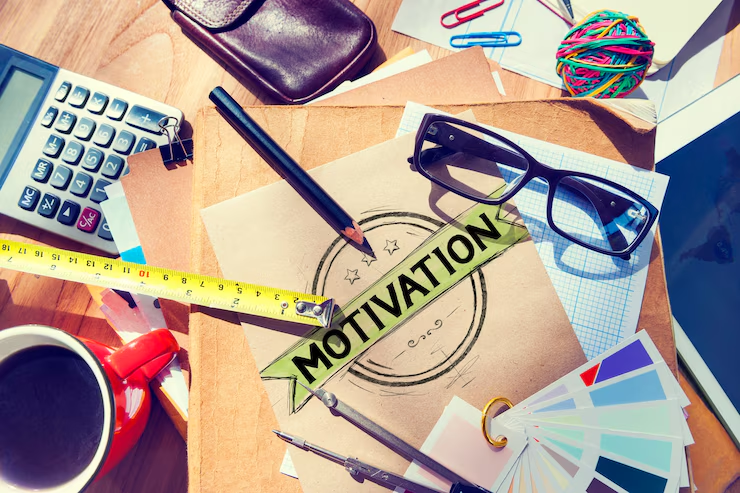Stay Positive Everyday In 2025
Introduction
In a world that often feels chaotic and uncertain staying positive every day can seem like an impossible task. Stay Positive Everyday In 2025. However developing a consistently optimistic mindset is not just a feel good fantasy it a powerful tool for mental emotional and even physical well being. This guide explores practical strategies and science backed methods to help you maintain positivity daily no matter your circumstance
Positivity Matters
It about approaching life challenges with resilience hope and a mindset. That seeks solutions instead of problems. Numerous studies link a positive outlook to:
- Reduced stress and anxiety
- Improved cardiovascular health
- Stronger immune function
- Longer lifespan
- Better relationships and workplace performance
Mental and Emotional Benefits
Staying positive can decrease depression and anxiety. While increasing self confidence and emotional regulation.
Physical Health Boost
Optimism has even been shown to promote healing and reduce the risk of chronic diseases.
Understanding the Psychology of Positivity

Positive psychology pioneered by Martin. Seligman explores the traits and habits that enable people to thrive. Core concepts include
- Gratitude
- Resilience
- Optimism
- Flow (total engagement)
Neuroplasticity and Your Mindset
Your brain can be trained to think more positively. Neuroplasticity allows the brain to rewire itself. Through practice meaning daily habits really do make a difference.
Start with a Morning Routine
Your day mood often starts in the first hour. A structured morning routine can set a positive tone.
Components of a Positive Morning Routine
- Wake up early to avoid rushing
- Hydrate immediately
- Stretch or exercise to boost endorphins
- Practice gratitude or journaling
- Set daily intentions
A strong morning routine signals your brain that you are in control helping you stay grounded and focused.
Practice Gratitude Daily
Gratitude shifts your focus from what lacking to what abundant in your life. This reframing reduces stress and increases satisfaction.
Practice It
- Keep a gratitude journal write 3 things you grateful for daily.
- Share appreciation with others.
- Reflect on difficult times and how you grew.
Limit Negative Inputs
Your environment affects your mindset more than you realize.
Reduce Exposure to Negativity
- Limit news intake
- Unfollow toxic social media accounts
- Avoid gossip and pessimistic conversations
Choose Uplifting Alternatives
- Listen to inspirational podcasts
- Read empowering books
- Watch uplifting films or videos
Surround Yourself with Positive People

Jim Rohn said You are the average of the five people you spend the most time with. Positive people uplift you support you and inspire growth.
Build a Positive Circle
- Seek friendships with optimists
- Join uplifting communities (online or in-person)
- Set boundaries with energy draining individuals
Maintain Physical Health for Mental Clarity
Your mind and body are deeply connected.
Key Physical Habits That Support Positivity
- Sleep well (7 9 hours)
- Exercise regularly (endorphins boost mood)
- Eat nutritious food
- Avoid excessive caffeine sugar and alcohol
When your body feels good it easier to maintain a positive mindset.
Affirmations and Visualization Techniques
Positive Affirmations
Repeating positive statements about yourself helps combat negative self-talk and build self belief.
Examples
- I am strong and capable.
- I attract good things into my life.
- Every challenge helps me grow.
Visualization
Picture your goals and how it will feel to achieve them. This practice reinforces belief and motivation.
Set Meaningful Goals
People with clear goals and a sense of purpose report higher happiness levels.
SMART Goals for Positivity
- Specific
- Measurable
- Achievable
- Relevant
- Time bound
Having a sense of direction keeps you focused on progress, not problems.
Stay Present with Mindfulness
Mindfulness Matters
Mindfulness is the practice of being fully present. It reduces stress improves mood and fosters appreciation for the moment.
Easy Ways to Be More Mindful
- Deep breathing exercises
- Mindful eating
- Observing nature
- Body scan meditation
Even 5 10 minutes daily can make a big difference.
Learn to Reframe Negative Thoughts
Cognitive Reframing
Reframing is a cognitive technique where you shift your perspective on a negative situation.
Instead of: I failed.
Try: I learned something important.
Practice Makes Progress
Start noticing your inner dialogue and gently steer it toward constructive supportive language.
Practice Acts of Kindness
Helping others boosts serotonin and oxytocin chemicals linked to happiness.
Kindness Ideas
- Compliment a stranger
- Donate to a cause
- Help a coworker
- Call someone you care about
Even small acts can ripple into big emotional rewards.
Celebrate Small Wins
Waiting for major milestones to feel happy can delay your joy. Celebrate small achievements to fuel momentum.
Examples:
- Finishing a task
- Learning a new skill
- Handling a tough conversation
Create a Win Journal
Keep a record of your daily accomplishments no matter how small. It builds confidence and motivation.
Build Positivity Habits
Positivity isn’t a one time decision its a daily commitment.
Habit Stacking
Attach new positive habits to existing routines.
Example: After I brush my teeth I will say one positive affirmation.
Track Your Habits
Use apps or journals to monitor your progress and stay accountable.
Self Compassion Matters
Its easy to stay positive when everything is going well but what about when you make a mistake fail or fall short of your goals. This is where self compassion becomes a vital skill. Being kind to yourself during difficult times allows you to bounce back with resilience instead of sinking into self-criticism.
Practice It
- Talk to yourself like a friend Replace harsh inner dialogue with supportive words.
- Acknowledge your emotions without judgment.
- Forgive yourself for past mistakes focus on learning and growth.
You yourself as much as anybody in the entire universe deserve your love and affection. Buddha
Develop Emotional Intelligence
Emotional Intelligence involves the ability to identify understand, manage and express your emotions effectively and to handle relationships empathetically. It strongly linked to mental well-being and positivity.
EQ Core Skills
- Self-awareness: Recognize what you feeling and why.
- Self-regulation: Control impulses and manage emotions constructively.
- Motivation: Stay driven despite challenges.
- Empathy: Understand and respond to others emotions.
- Social skills: Communicate clearly and build healthy connections.
By developing EQ you improve your emotional resilience and your ability to remain calm focused and positive in high stress situations.
Failures into Learning Opportunities
The Growth Mindset
Coined by psychologist Carol Dweck a growth mindset is the belief that your talents and abilities can be developed through effort learning and persistence. This contrasts with a fixed mindset that sees abilities as static.
Shift in Perspective
- Failure is feedback: Instead of I ca not say I haven yet.
- Analyze what went wrong and how to do better next time.
- Celebrate the courage to try not just the result.
Create a Vision Board
A vision board is a physical or digital collage of images and words that represent your goals dreams and values. It serves as a daily reminder of what you working toward and keeps your energy focused.
How to Make One
- Choose a medium (poster board digital app like Canva Pinterest).
- Include affirmations motivational quotes and visuals.
- Place it where you’ll see it often your bedroom workspace or phone background.
Journaling for Clarity and Positivity
Journaling is a powerful method to process emotions set intentions and reflect on your progress.
Types of Journaling
- Gratitude journaling: List things you thankful for.
- Bullet journaling: Organize goals and habits.
- Reflective journaling: Explore daily thoughts and insights.
It helps clear mental clutter and reminds you of how far you come.
Cultivate a Passion or Hobby
Engaging in creative or meaningful hobbies provides a flow state where you so immersed in an activity time seems to disappear. This boosts happiness and reduces anxiety.
Examples
- Painting music dancing writing
- Gardening photography sports
- Volunteering mentoring teaching
Make time for joy not just productivity.
Declutter Your Space and Mind
Clutter increases stress and reduces focus. A clean organized space promotes calmness and clarity.
How to Start
- Tackle one small area daily (desk drawer closet).
- Digitally declutter (emails apps social media).
- Use minimalist principles: Keep only what’s useful or meaningful.
This external order supports internal peace.
Technology to Stay Positive
Leverage digital tools to support your mental health and keep you on track.
Recommended Apps
- Calm or Headspace for meditation
- Gratitude or Presently for journaling
- Habitica or Streaks for habit tracking
- Shine for daily affirmations
Set reminders for hydration breathing and breaks to avoid burnout.
Take Breaks and Rest Often
The Power of Pause
Constant busyness drains your energy and positivity. Rest is not laziness its a necessity for well being.
Break Techniques:
- Pomodoro method (25 min work / 5 min break)
- Nature walks or stretching
- Digital detox hours or weekends
Recharge regularly to stay centered and energized.
Learn to Say No
Protecting Your Energy
Saying yes to everything can lead to overwhelm and resentment. Learning to say no is a powerful act of self respect.
When to Say No
- When something does not align with your goals
- When it drains your emotional energy
- When it compromises your well being
Polite refusal: Thanks for thinking of me but I wo not be able to commit right now.
Engage in Spiritual or Philosophical Reflection
Whether you follow a religion or a personal philosophy reflecting on your values and beliefs provides grounding and direction.
Ideas
- Read spiritual texts or philosophical works
- Meditate or pray regularly
- Attend community or support groups
- Explore your purpose and personal mission
This deeper connection can sustain long term optimism even in dark times.
Conclusion
Positivity is not about ignoring life struggles it about choosing how you respond to them. By cultivating daily habits like gratitude mindfulness affirmations and goal setting you empower yourself to thrive even in adversity.






